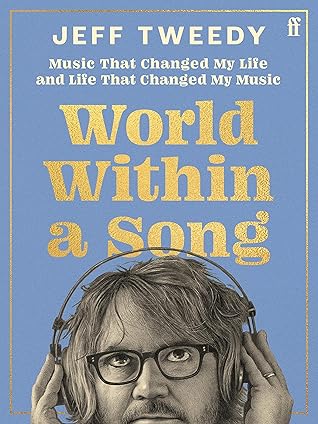More on this book
Kindle Notes & Highlights
I have very few strongly held beliefs. Among them is the conviction that loving one thing deeply and with ardor is the best way to open yourself up to the world.
Things were different then. Without much else to distinguish ourselves from each other as adolescents (fewer clothing options, same shoes, our moms all cut our hair), we were forced to broadcast our allegiances (jock, nerd, sosh, etc.) by the music we professed to love.
“Jesus died for somebody’s sins but not mine.” Has there ever been a more attention-grabbing first line of a record? Patti Smith’s album Horses was yet another providence-delivered document slipped under the door of the mental cage that was late-seventies small-town life, via my brother’s gifted stash.
At the time this song came out there were very strict lines in the sand being drawn between cultural camps. This tune was located deep in “enemy” territory, at the intersection of pop and disco.
I was just self-possessed enough as a nine-year-old in 1976 to be able to see how overblown my brother’s lectures on the dangers of “bubblegum” music were. So I could tune him out when he’d go on about how my “brain was still developing” and I “must be vigilant against IQ-lowering aspects of TV and pop culture.”
Because what I was really searching for in those days was authenticity. I craved it. There was a deep need to feel like I wasn’t always being lied to. That there were, in fact, “real” things in the world. Not everything was an agreed-upon fiction like the flag, or dollar bills, or sports “teams.” Or, of course, the shared delusions of religion. Punk rock records gave me a lot of hope, but they weren’t foolproof. Bands could burn you by “selling out.” Which is kind of a quaint concept these days. It was dumb. But it really did hurt at the time.
This opinion is controversial in what was once a low-stakes kind of way. Decidedly. But there’s really no such thing as low-stakes in this era where simply “liking” someone else’s post, absentmindedly, could lower your stock. It’s an outrage economy and I don’t want anything to do with it.
One of the things people always marvel at about Dolly is that she wrote this song and “Jolene” in the same day. When I heard that for the first time, I thought to myself, “That’s pretty impressive, but at least one of those two songs sucked.” I possibly thought that so I could go back to feeling okay with myself as a hardworking songwriter.
Bon Jovi possesses the type of arrogance that compels one to swing for the fences every time one steps to the plate (microphone). Every song is angling to be a world-changing anthem. It’s completely alien to me. So I reflexively reject everything Bon Jovi does. In fact, I hate it so much I’d like to retract my previous words advocating for allowing space for everyone to like what they like and despise what they despise. I was wrong. This song sucks and you should not like it.
RADIO FREE EUROPE
THE BEATLES
I think it has something to do with this: To a lot of us, Lou Reed represents the triumph of form over beauty, ideas over sentiment, honesty over bullshit, vision over acceptance. He flipped off all of the phonies for us. And he made it clear who the phonies were, and underlined how little technical perfection mattered if all you were going to do with it was pander to the powers that be.


